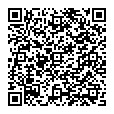04 ott 2024
The upcoming guidelines for an effective Tax Control Framework (Tcf) highlight the responsibilities of taxpayers as outlined in the recent decree by the Ministry of Economy and Finance.
Companies aiming for cooperative compliance must understand the operational implications of signing the Code of Conduct by October 5,2024.
Key duties include implementing measures to prevent involvement in tax fraud,such as carousel fraud and fictitious contracts.
Effective tax risk management involves identifying roles and responsibilities,conducting supplier checks,and ensuring proper contract reviews.
Additionally,maintaining a robust financial information control system is crucial,especially for companies not legally required to have structured controls.
The Tcf should also map fiscal risks related to accounting principles,avoiding redundant controls and simplifying the system.

The forthcoming guidelines for an effective Tax Control Framework (Tcf) emphasize the responsibilities of taxpayers as detailed in the decree issued by the Ministry of Economy and Finance on April 29.
Companies seeking cooperative compliance must clearly understand the operational implications of signing the Code of Conduct,which is mandatory for those already in the regime by October 5,2024.
A critical duty is to implement measures to prevent the company from being involved in tax fraud,including carousel fraud,the use of invoices for non-existent costs,and fictitious labor supply contracts.
Tax risk management processes are essential in mitigating these risks by identifying roles,responsibilities,and controls,such as supplier checks through specialized databases,VAT verification,and obtaining fiscal compliance documents.
Companies should adopt authorization procedures and segregate duties among functions selecting suppliers,concluding purchase contracts,and authorizing payments.
Legal and fiscal contract reviews are necessary to identify inconsistencies between contract terms and the adopted tax treatment.
Mapping controls in the risk control matrix supports effective implementation and coordination with structures managing the organizational model under Dlgs 231/2001.
An effective Tcf is a valuable tool for management to mitigate tax fraud risks,benefiting both the company and the tax authorities.
Another significant aspect is the obligation to establish and maintain a financial information control system,ensuring the reliability of accounting data underpinning tax obligations.
This requirement should be clarified for companies not legally required to have structured financial control systems,adapting it to those lacking comprehensive control levels over accounting principles and financial statements.
Article 4 of Dlgs 128/2015 mandates that the Tcf includes fiscal risks related to accounting principles.
To avoid redundant controls and simplify the system,this requirement can be documented through the tax risk manager's acquisition of accounting control procedures and results from relevant control functions or bodies,such as administrative checks,auditor reports,and oversight bodies.

